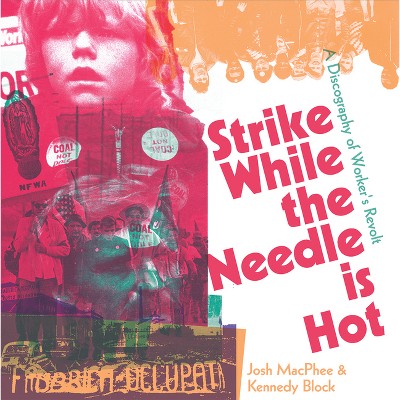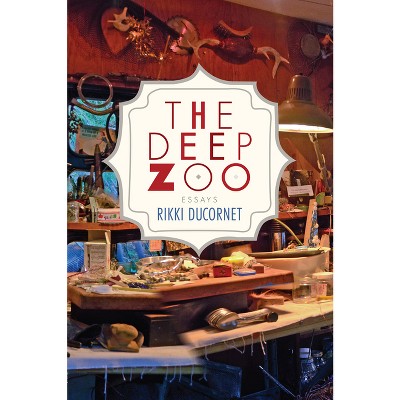Sponsored

Dreams of a Lifetime - by Karen a Cerulo & Janet M Ruane
In Stock
Sponsored
About this item
Highlights
- How social status shapes our dreams of the future and inhibits the lives we envision for ourselves Most of us understand that a person's place in society can close doors to opportunity, but we also tend to think that anything is possible when someone dreams about what might be.
- About the Author: Karen A. Cerulo is professor of sociology at Rutgers University and editor of Sociological Forum.
- 280 Pages
- Social Science, Sociology
Description
About the Book
"We are told that, in dreaming, anything is possible. Dreams are imaginings that are not supposedly linked to concrete experience or action or inhibited by the social and political disadvantages that may come from one's class position, race, ethnicity, or gender. They do not articulate a roadmap for achievement or a path to a specific end in the way that aspirations or projects do. They are mental exercises that provide a vision of a person's inner self and desired identity. In this book, Karen Cerulo and Janet Ruane interrogate what it means to dream, what our dreams look like, and whether our social location impacts what, when, how, and if we dream. Drawing on data from interviews and focus groups with 272 people from different social backgrounds, the authors argue that while dreams are generally treated as personal and unique, they are quite clearly patterned in very predictable ways. People's dreams differ from age to age, group to group, and context to context, and the chapters focus on different subsets of the study participants. After examining how race, class, and gender impact dreaming, the authors examine different life stages and finally those who have faced "ruptures" in their life stories. In Dreams of a Lifetime, the authors conclude that dreams represent the starting point of our perception of "fit"; they tell the story of where we think we belong, what life paths we consider taking, and what we think we deserve before that story is lived. And that story is built from the cultural lessons to which we are exposed in our daily social interactions and the cultural contexts in which we live"--Book Synopsis
How social status shapes our dreams of the future and inhibits the lives we envision for ourselves
Most of us understand that a person's place in society can close doors to opportunity, but we also tend to think that anything is possible when someone dreams about what might be. Dreams of a Lifetime reveals that what and how we dream--and whether we believe our dreams can actually come true--are tied to our social class, gender, race, age, and life events. Karen Cerulo and Janet Ruane argue that our social location shapes the seemingly private and unique life of our minds. We are all free to dream about possibilities, but not all dreamers are equal. Cerulo and Ruane show how our social position ingrains itself on our mind's eye, quietly influencing the nature of our dreams, whether we embrace dreaming or dream at all, and whether we believe that our dreams, from the attainable to the improbable, can become realities. They explore how inequalities stemming from social disadvantages pattern our dreams for ourselves, and how sociocultural disparities in how we dream exacerbate social inequalities and limit the life paths we believe are open to us. Drawing on a wealth of original interviews with people from diverse social backgrounds, Dreams of a Lifetime demonstrates how the study of our dreams can provide new avenues for understanding and combating inequality--including inequalities that precede action or outcome.Review Quotes
"
Dreams of a Lifetime belongs to a particular shelf, one that holds those books that utilize sociology seriously to best capture the pulse of the United States at a particular juncture in time. In this tradition, one can find treatises about loneliness (Riesman, Slater), disconnection (Putnam, Sennett), how people think and feel (Bellah et al.), the life of those on the lower ladders of this society (Sennett and Cobb, Liebow, and more recently Desmond as well as Horschild). A lot has changed since some of these books were published. . . but the impetus remains the same: to explain to ourselves who we are at a particular juncture in time, in a jargon free, yet sociologically informed way.
"---Claudio E. Benzecry, Sociological Forum"Winner of the Mary Douglas Prize, Culture Section of the American Sociological Association"
About the Author
Karen A. Cerulo is professor of sociology at Rutgers University and editor of Sociological Forum. Her books include Never Saw It Coming: Cultural Challenges to Envisioning the Worst. Janet M. Ruane is professor emerita of sociology at Montclair State University. Her books include Introducing Social Research Methods and (with Karen A. Cerulo) Second Thoughts: Sociology Challenges Conventional Wisdom.Shipping details
Return details
Discover more options

















